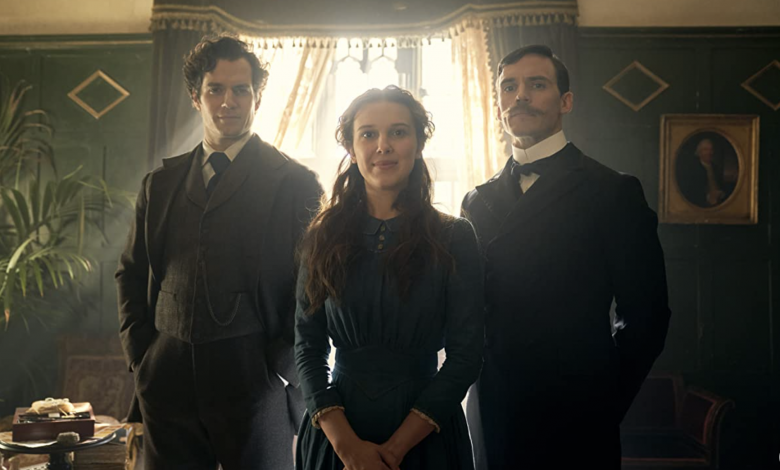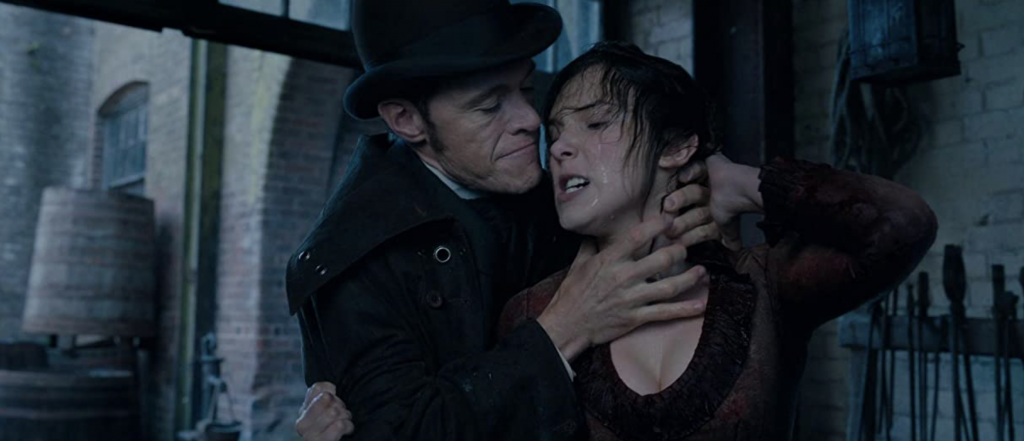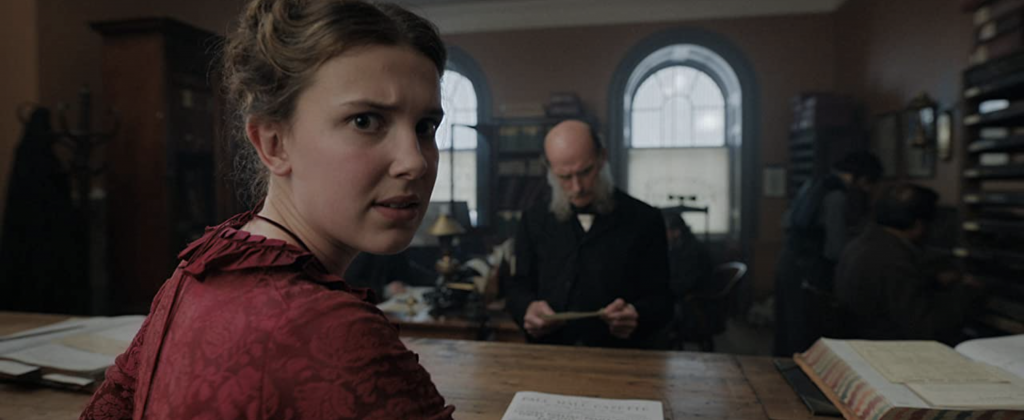Lessons Taught and Learned in Enola Holmes

Nina Khosla ’23 / Emertainment Monthly Staff Writer
The lessons we are taught in our childhood by those who love us most are the ideas that shape our mind and outlook on life. For Enola Holmes, this outlook is vastly strong-willed and self-sufficient, especially for a woman in the 1800’s, and she has her mother to thank for it. Her brothers Sherlock and Mycroft are far older and have left home, the former to solve cases across England as a detective and the latter to serve in a government role, but Enola is raised by her mother Euduoria, who taught and honed every skill Enola could possibly need, from classical literature to hand-to-hand combat.
With a star-studded cast of Millie Bobby Brown, Helena Bonham Carter, Henry Cavill, and Sam Claflin as the titular Holmes family, this film does an excellent job of portraying a feminist message while showing the harsh sexism present in the family dynamic at the time.
All too often do we read history books about the equally talented sister of a prodigy, a girl whose family focused their resources on the boy and cemented his name in history, leaving her name unspoken in the process. We’ve seen it in the Mozart family, whose daughter Maria was a top-billed harpsichordist and musician but who, when she reached a marriageable age, was banned from the spotlight for fear of her artistic endeavors tarnishing the Mozart name. Instead, her brother Wolfgang was the focus of the family’s attention and training, and now the only Mozart we know is him, not Maria. Enola Holmes did not let the daughter in the story fall by the wayside. And to offer a small gratitude to right this egregious wrong, Netflix erected statues around London showing sisters whose achievements were overshadowed by their brothers.
Throughout the movie, Enola uses her connection to and understanding of her mother to approach problems and clues with a vested interest, as opposed to the notorious apathy Sherlock Holmes uses to investigate. Reminiscent of the 1916 play Trifles by Susan Glaspell, Enola demonstrates time and time again that emotional connection and honest interest in a case is what will make it unravel.

When her mother disappears and Enola is sent to a finishing school to become a “proper lady,” she uses the hints her mother left her to figure out where to find Euduoria and rekindle the bond they had. But throughout this journey of self-exploration, she relives her childhood, using the skills her mother taught her to survive as a woman on her own. She remembers her mother’s advice in regards to jujitsu when she beats the man out to kill her, she thinks fondly of her mother’s secretive meetings as she meets the women who frequented her home years prior, and as Enola explores the streets of London looking for her mother, she realizes what her mother truly prepared her for: existing with a voice in a society that demands silence and subservience from its women.
Although there was a fraught legal battle between Netflix and the Conan Doyle estate regarding portrayal of Sherlock Holmes as “having emotion” and whether that falls under public domain, every character in this movie is portrayed with a three dimensional lens. The nuances of a family with an eccentric and free-thinking matriarch show as we see through Mycroft and Sherlock’s eyes how it affected their upbringing. Although the film is through Enola’s perspective, we gain insight into the entire Holmes family and the skeletons in their closet.
Directed by Henry Bradbeer, also the director of Fleabag, this movie lets Enola’s character (and Millie Bobby Brown’s acting prowess) shine through in the asides, much like Fleabag does. When the scene is coming to its climax and we’re unsure how the movie will progress, Brown’s turn to the camera and sly grin or subtle wink comforts us immensely.

As audacious as Enola is, we still see her timid side when she is met with negative female characters, namely the headmistress of her finishing school. Bradbeer focuses on the female influences in Enola’s life, and until age sixteen, Enola never had anything but positive women shaping her. For the audience to see the first time Enola has had to face a woman who completely subscribes to what society expects of her, it is jarring. Bradbeer humanizes Enola, but he focuses equally on the headmistress’s motives.
This movie also focuses on societal changes of the era, namely the Representation of the People Act in 1884. As the film progresses, we find out that Mycroft has an interest in keeping the bill from passing, Eudoria’s life’s work balances on the edge of the upcoming civilian uprising, and Enola’s friend Lord Tewkesbury is the target of a plot to keep his vote out of the bill’s passing and to keep power in the Parliament. No one is immune to social change, and everyone has motives to keep their status or rally for an overhaul of the status quo.
Overall, this film was amazing. Critics loved it, and it is likely one of the films that will cement Millie Bobby Brown’s name in history. Acting as a producer on the film as well, Brown skillfully weaved a story that young girls like to watch and that parents want their daughters to see on screen: an unapologetically fierce and outgoing girl who is extremely well-read and intelligent and who uses her skills and talents to help others in need and to foster relationships built off love and respect, not sexist social norms.